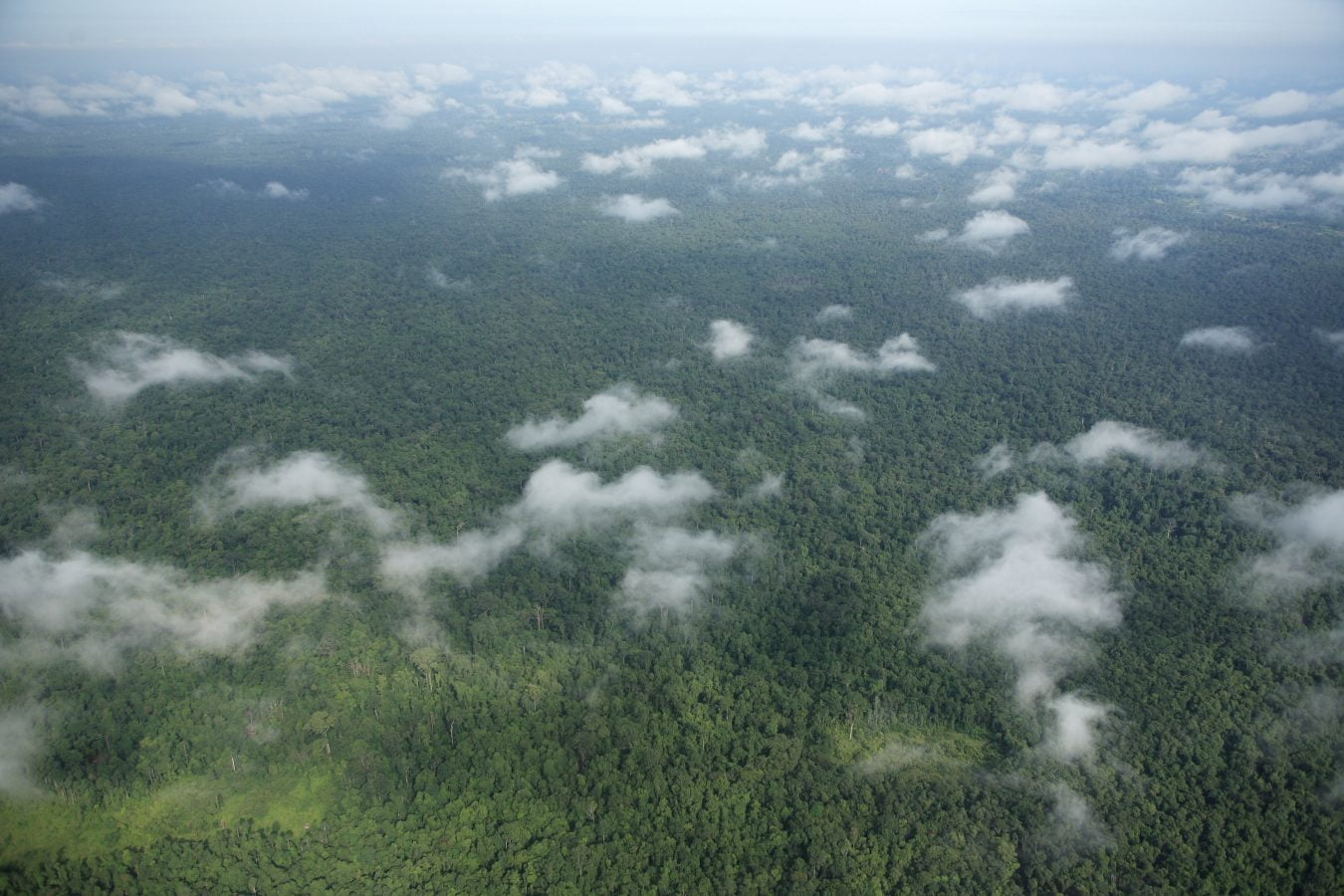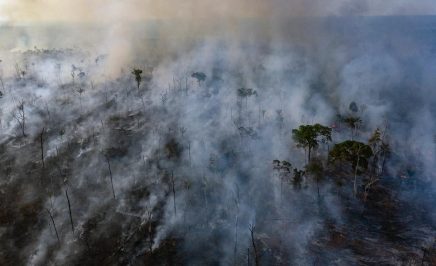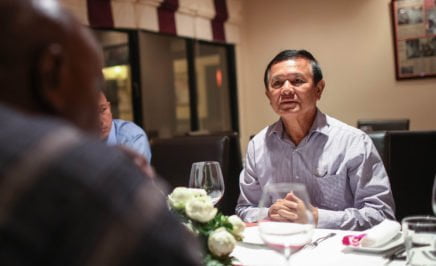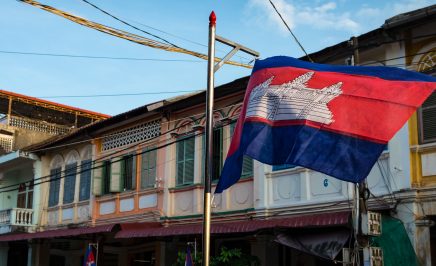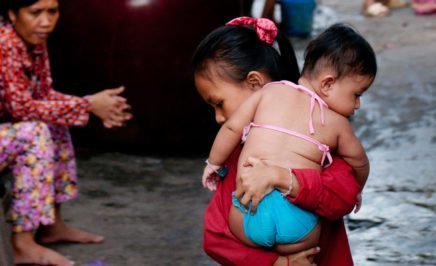Illegal logging of protected forests is undermining the human rights and erasing the traditions of Indigenous peoples in Cambodia, new research by Amnesty International has revealed.
In a new report, ‘Our Traditions Are Being Destroyed’: Illegal Logging, Repression, and Indigenous Peoples’ Rights Violations in Cambodia’s Protected Forests, Kuy people tell how deforestation and government restrictions on access have harmed their spiritual practices, land rights, livelihoods, and ability to protect the forest.
Cambodia has experienced one of the highest rates of deforestation worldwide in recent decades, losing approximately 64% of its tree cover since 2011 alone. New data analyzed by Amnesty International and remote sensing agency Space4Good revealed extensive recent deforestation in the two protected areas.
A remote sensing calculation using currently available data sources shows 6,271 hectares were deforested in 2021 (an area in size equivalent to 8,784 soccer pitches). Further deforestation is also likely to be revealed as more datasets offering additional insights become available.
“Rampant illegal logging in Cambodia is posing an existential threat to the country’s remaining primary forests, and the Indigenous peoples who depend on them for their livelihoods, their culture and their spiritual practices,” said Richard Pearshouse, Amnesty International’s Head of Crisis and Environment.
“Time and time again, government officials who are supposed to be protecting these precious forests are instead profiting from their destruction by allowing the illegal logging trade to flourish.
“The Cambodian authorities must stop illegal logging by immediately clamping down on this rampant corruption. The rights of the Kuy people must be protected in all conservation efforts.”
The report is based on interviews with 20 community activists involved in the protection of Prey Lang and Prey Preah Roka, both of which are home to significant Kuy populations and which also contain protected Wildlife Sanctuaries.
Under both domestic and international human rights law, the Cambodian authorities have legal obligations to protect Indigenous peoples’ human rights, including their cultural rights.
Cultural and spiritual connection
Cambodia is home to approximately 24 different Indigenous peoples, and the Kuy people are one of the largest of these groups.
Indigenous peoples in Cambodia often maintain a close connection with the traditional forested lands on which their livelihoods and cultural practices depend. Illegal logging, therefore, not only threatens biodiversity and climate, but also significantly undermines Indigenous peoples’ cultures and human rights.
All of the Kuy people interviewed by Amnesty International expressed concern that their cultural survival was threatened by extensive deforestation of both forests.
Huot* said: “The forests around us are a part of the health of our community – our connection to the spirits, and the forest they live in, is what maintains our wellbeing as a community, and our sense of friendship and solidarity to one another. When the forest is lost, and we no longer maintain our connections to the spirits, we lose that sense of wellbeing.”
Thyda* described the detrimental impact of deforestation for the next generation: “I feel like there is almost nothing left of our culture. The younger generation will never get to know all the important places for us in the forests…There are ancient villages that were once inside the forest, and we still pay our respects to spirits of our ancestors. Now, these places have been destroyed because of logging.”
Economic impact of deforestation
Kuy people around Prey Lang and Prey Preah Roka depend largely on the sustainable use of the forests for their livelihoods, including through resin tapping, a practice that does not ultimately harm trees and can continue for decades.
The resin is sold and used domestically for low-grade lighting, and commercially for boat caulks, paints and varnishes. However, illegal loggers have increasingly targeted resin trees for use in timber production.
Two species of resin trees found in Prey Preah Roka are particularly sought after by loggers because of their suitability for furniture production and are commonly used in making tables, doors, chairs, beds and ceiling beams.
Thyda* told Amnesty International that an estimated 70% of resin trees have been lost in Prey Preah Roka in recent years, and added: “Many people from outside… come and steal our trees when we are not in the forest – especially during the rice season when we are planting saplings or harvesting rice. This is when they get stolen the most, because people know we are busy in our fields which are far from Prey Preah Roka. Sometimes in one day, 30 or 40 resin trees will be cut.”
Interviewees in Prey Lang also told how loggers would sometimes offer to buy resin trees from community members, who said they felt they had little choice but to accept whatever price was on offer, as the tree would be felled regardless.
Bribery and corruption
Across both forests, Kuy people consistently described how police officers and Ministry of Environment officials demanded and accepted bribes in return for ignoring illegal logging.
One interviewee familiar with the situation in Prey Lang said: “The big problem is that the authorities, especially the Ministry of Environment, are only interested in collecting money. I have tried many times and gone directly to the ministry’s provincial office and told them about logging and given them photos and other evidence. They go to investigate it – but they only investigate it to collect [bribes] from the loggers.”
All interviewees told Amnesty International they had witnessed police from local posts blatantly accepting money from loggers as they transported their hauls from the parks, and that police had several checkpoints set up solely to extract money from loggers.
Amnesty International has also previously documented how Cambodian authorities have denied environmental activists access to the rainforests, and how their ongoing ban on community patrols is allowing illegal logging to continue unchecked.
“Cambodia’s approach to conservation is characterized by official corruption and a complete disregard for Indigenous peoples’ rights. If the Cambodian authorities don’t change course soon, the country’s protected forests will be illegally logged into oblivion,” said Richard Pearshouse.
“It is essential that Indigenous-led community groups are enabled and empowered to engage in forest patrols and other protection activities. Indigenous peoples are widely recognized as the most effective protectors of their traditional lands, and Cambodia’s ongoing ban on community groups’ access is a blatant violation of their human rights.”
Methodology
Amnesty International conducted interviews with 20 community members engaged in forest protection activities in Prey Lang and Prey Preah Roka between June and October 2021. The majority of those interviewed identified as Indigenous Kuy, and all interviewees came from communities based in or around the forests.
The report also draws on information from open sources, including relevant national law and international human rights standards, reports from civil society organization, articles published in domestic and international news media, and academic journals.
Space4Good is a geospatial social enterprise providing earth observation monitoring, reporting and verification solutions for social and environmental impact leaders around the world.
